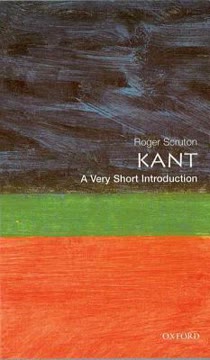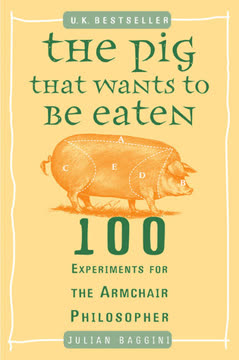Key Takeaways
1. Hume's skepticism challenged traditional philosophy and religion
"Understanding, when it acts alone, and according to its most general principles, entirely subverts itself, and leaves not the lowest degree of evidence in any proposition, either in philosophy or common life."
Radical doubt. Hume's skepticism was revolutionary, questioning the very foundations of knowledge and belief. He argued that pure reason alone cannot establish certainty about the world, challenging both rationalist philosophy and religious dogma.
Empiricism over rationalism. Hume advocated for an empirical approach based on observation and experience, rather than abstract reasoning or revelation. This shift laid the groundwork for modern scientific thinking.
Limits of human understanding. Hume emphasized the boundaries of human knowledge, arguing that we should be modest in our claims and open to revising our beliefs based on new evidence.
2. Human nature and experience form the foundation of knowledge
"The science of man is the only solid foundation for the other sciences."
Empirical basis. Hume argued that all knowledge ultimately derives from sensory experience and observation of human nature, rejecting innate ideas or divine revelation as sources of understanding.
Psychology and epistemology. He explored how the mind processes information and forms beliefs, laying the groundwork for modern cognitive psychology and theories of learning.
Custom and habit. Hume emphasized the role of custom and habit in shaping our beliefs and expectations about the world, rather than pure logic or reason.
3. Reason is the slave of passions in human decision-making
"Reason is, and ought only to be the slave of the passions, and can never pretend to any other office than to serve and obey them."
Emotions drive action. Hume argued that reason alone cannot motivate behavior; our desires, emotions, and sentiments are the primary drivers of human action.
Practical reason. While reason cannot determine our ultimate goals, it can help us figure out how to achieve them effectively. Reason serves as a tool for realizing our emotionally-driven ends.
Critique of pure rationality. This view challenged the prevailing notion that humans are primarily rational beings, anticipating modern psychological insights into decision-making and cognitive biases.
4. Morality stems from sentiment and utility, not reason alone
"Morals excite passions, and produce or prevent actions. Reason of itself is utterly impotent in this particular."
Moral sentiments. Hume argued that our moral judgments are primarily based on feelings of approval or disapproval, rather than abstract rational principles.
Utility and social benefit. He emphasized that we tend to approve of actions and character traits that promote individual and social well-being.
Is-ought problem. Hume famously pointed out that we cannot derive moral obligations (what ought to be) solely from factual statements about the world (what is), highlighting the limits of purely rational ethics.
5. Causation is a mental habit, not an observable connection
"We have no other notion of cause and effect, but that of certain objects, which have been always conjoined together, and which in all past instances have been found inseparable."
Constant conjunction. Hume argued that when we observe cause and effect, we're really just seeing two events that regularly occur together, not any necessary connection between them.
Induction problem. He pointed out that we cannot logically justify our belief that the future will resemble the past, which underlies all causal reasoning.
Psychological explanation. Hume proposed that our sense of causation comes from mental habits formed through repeated experience, not from direct perception or logical necessity.
6. Personal identity is a bundle of perceptions, not a fixed essence
"The mind is a kind of theatre, where several perceptions successively make their appearance; pass, repass, glide away, and mingle in an infinite variety of postures and situations."
No permanent self. Hume challenged the notion of a fixed, enduring self, arguing instead that our sense of identity is composed of a constantly changing stream of perceptions and experiences.
Bundle theory. He proposed that what we call the "self" is really just a collection of mental states, memories, and dispositions, without any underlying substance or essence.
Anticipating modern views. Hume's theory of personal identity prefigured later philosophical and psychological approaches that emphasize the dynamic, constructed nature of the self.
7. Religion and superstition should be approached skeptically
"A wise man proportions his belief to the evidence."
Miracle skepticism. Hume argued that extraordinary claims require extraordinary evidence, making belief in miracles unjustified based on the available testimony.
Natural explanations. He advocated for seeking natural rather than supernatural explanations for phenomena, laying groundwork for modern secular approaches to understanding the world.
Origins of religion. Hume explored the psychological and social factors that give rise to religious beliefs, offering naturalistic explanations for their prevalence and persistence.
8. Moderation and balance are key to a well-lived life
"Be a philosopher; but, amidst all your philosophy, be still a man."
Practical philosophy. Hume emphasized that philosophical reflection should enhance, not detract from, everyday life and human relationships.
Balancing skepticism and belief. While advocating for critical thinking, Hume recognized the need to hold some beliefs provisionally to function in the world.
Cultivating character. He stressed the importance of developing virtues like moderation, sociability, and good humor as key components of a fulfilling life.
9. Death should be faced with equanimity, not fear
"I go very fast to decline, and last night had a small fever, which I hoped might put a quicker period to this tedious illness, but unluckily it has, in a great measure, gone off."
Acceptance of mortality. Hume approached his own death with remarkable calm, seeing it as a natural part of life rather than something to be feared or resisted.
Living well as preparation. His equanimity in the face of death stemmed from a life well-lived, focused on intellectual pursuits, friendships, and cultivating virtue.
Secular approach. Hume's attitude toward death demonstrated that one can face mortality with dignity and peace without relying on religious beliefs or hopes for an afterlife.
Last updated:
FAQ
What's The Great Guide: What David Hume Can Teach Us about Being Human and Living Well about?
- Exploration of Hume's Philosophy: The book delves into David Hume's life and philosophy, focusing on his insights into human nature and morality.
- Connection Between Life and Work: Julian Baggini argues that understanding Hume requires considering both his philosophical writings and personal experiences.
- Relevance to Modern Issues: Hume's ideas are presented as particularly pertinent to contemporary life, offering guidance through today's challenges.
Why should I read The Great Guide?
- Insightful Perspective on Hume: Baggini provides a fresh interpretation, presenting Hume as a guide for modern living.
- Practical Philosophy: The book makes Hume's philosophy accessible, distilling complex ideas into relatable concepts.
- Encouragement of Critical Thinking: It encourages readers to question assumptions and seek understanding through experience.
What are the key takeaways of The Great Guide?
- Importance of Experience: Hume believed experience is the "great guide of human life," shaping our understanding of the world.
- Moderation and Balance: Hume advocated for moderation in thought and action, exemplifying a balanced approach to life.
- Skepticism as a Tool: Embracing doubt can lead to a deeper understanding of ourselves and the world.
What are the best quotes from The Great Guide and what do they mean?
- Travel and Prejudices: "There are great Advantages, in travelling, & nothing serves more to remove Prejudices." This highlights the value of exposure to different cultures.
- Philosophy and Morality: "The most abstract speculations concerning human nature... become subservient to practical morality." Hume links philosophical inquiry to practical moral understanding.
- Evidence-Based Belief: "A wise man... proportions his belief to the evidence." This encapsulates Hume's empirical approach to knowledge.
How does Baggini interpret Hume's views on success in The Great Guide?
- Success Redefined: Hume's concept of success involves living a life of virtue and fulfillment, not just wealth or status.
- Balance Between Ambition and Contentment: Hume advocated for pursuing ambitions while enjoying life's simple pleasures.
- Human Connection: Success includes valuing relationships and community, finding joy in companionship and intellectual discourse.
What does The Great Guide say about Hume's skepticism?
- Skepticism as a Method: Hume's skepticism is a tool for understanding human limitations, not a rejection of knowledge.
- Practical Implications: It encourages open-mindedness and adaptability, relevant in today's polarized environment.
- Skepticism and Morality: Hume challenges absolute moral truths, allowing for a nuanced understanding of ethics.
How does Baggini connect Hume's life experiences to his philosophy in The Great Guide?
- Biographical Context: Understanding Hume's life provides essential context for his philosophical ideas.
- Philosophy in Practice: Hume lived out his principles, advocating for moderation, sociability, and intellectual curiosity.
- Lessons from Failures: Hume's humility in acknowledging mistakes is a vital aspect of his character and thought.
What is Hume's view on human nature as discussed in The Great Guide?
- Empirical Understanding: Hume believed human nature is best understood through observation and experience.
- Complexity of Emotions: Emotions and motivations are shaped by both reason and sentiment.
- Interconnectedness of Humanity: Moral sentiments are rooted in empathy and social bonds, fostering a compassionate society.
How does The Great Guide address Hume's views on religion?
- Critical Examination: Hume questioned religious dogma while maintaining a respectful distance from atheism.
- Faith vs. Reason: He believed faith is distinct from reason, relying on belief rather than empirical evidence.
- Moral Implications: Morality should be grounded in human experience and empathy, not solely on religious beliefs.
What role does emotion play in Hume's philosophy as discussed in The Great Guide?
- Central to Decision-Making: Emotion drives human actions, often dictating choices more than rational thought.
- Moral Judgments: Emotions influence moral evaluations, shaping perceptions of right and wrong.
- Balance with Reason: A harmonious relationship between emotion and reason is essential for moral behavior.
How does Hume's view of justice differ from traditional views as presented in The Great Guide?
- Social Construct: Justice is a social construct, not an abstract virtue, invented to manage harmonious societies.
- Utility-Based: Justice rules arise from their utility to society, adaptable to human needs.
- Equality and Fairness: Hume warns against strict equality, advocating for a balanced approach to justice.
What is the significance of Hume's legacy as discussed in The Great Guide?
- Influence on Modern Thought: Hume's ideas have shaped contemporary philosophy, especially in ethics and epistemology.
- Humanistic Approach: His philosophy prioritizes empathy and understanding over rigid moral codes.
- Relevance Today: Hume's insights address fundamental questions about living and interacting in modern life.
Review Summary
The Great Guide by Julian Baggini explores David Hume's life and philosophy, offering insights into his ideas on thinking, morality, and living well. Readers appreciate Baggini's accessible writing style and his ability to connect Hume's thoughts to modern life. The book combines biography, travelogue, and philosophical analysis, providing a comprehensive introduction to Hume's work. While some reviewers found it more biographical than expected, most praise its engaging presentation of Hume's ideas and their relevance today.
Similar Books
Download PDF
Download EPUB
.epub digital book format is ideal for reading ebooks on phones, tablets, and e-readers.














